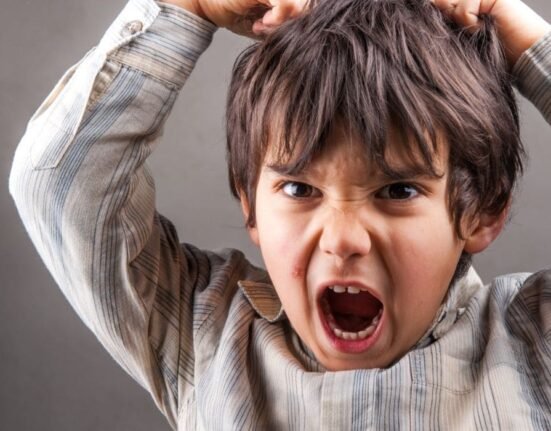Drawing the line between a parent’s discipline of their child and child abuse will depend greatly on the state where the family lives. There are some state’s rules which allow a parent greater latitude in disciplining their child while other states will require less severe discipline.
When the laws are on the side of the child, the definition of abuse usually involves the willful and intentional harm to the youth that could lead to physical, mental, emotional, or sexual injury. Anyone of any age as a parent or other family member could cause damage by crossing the line from discipline to abuse. Generally, these injuries will alter the life of the child and could cause severe trauma and even post-traumatic stress disorder depending on the severity of the harm and who was part of the abuse. Charges incur when law enforcement is aware of the situation.
If you, however, punish your child instead of disciplining them, the result will not be the same. Punishment is an act of anger and impulse. It happens when a parent takes things personally, the punishment is, in fact, retaliation for the child’s poor choice. In contrast, discipline is centered around helping the child, to correct their choices and actions. A parent who disciplines is trying to teach their child right from wrong, helping them learn life skills. Ultimately, punishment hurts a child whereas discipline helps a child.
The urge to punish comes from within when you feel hurt by a child’s behavior you’re looking to strike back and inflict this same pain, often overreacting to the situation. For example, in the heat of the moment, Mom or Dad might lash out even raising a hand to a child instead of taking a deep breath and assessing the situation objectively. The challenge parents face is to detach themselves from the situation and control their anger and impulses before responding or reacting to the child. By controlling this anger and emotion, a parent can stop themselves from making the situation worse. And this is important, as punishment that can lead to abuse is usually both unreasonable and much more physical than discipline.
WHY IT IS SO IMPORTANT TO RESIST THE URGE TO REACT IN ANGER? Most abusive parents never plan on hurting their children, but they impulsively react and strike out of anger, punishing them with physical revenge instead of teaching them right from wrong. Once trapped in this mindset of punishment, it is difficult for parents to think rationally or even compassionately about their child’s actions. And in an instant, on impulse, lives can change dramatically.
A loving parent can be convicted of child abuse and land themselves in prison simply because they impulsively did something violent to their child. If you choose to listen to your impulses, you lose your self-control and ability to think clearly. One of the biggest problems with an adult punishing a child is that the two are not equals. When calm and rational, no one would argue that children are the same as adults. They are not the same size, nor strength, they have less knowledge and fewer life experiences. Furthermore, when parents punish their children out of anger, they teach kids that it’s okay to treat those who are weaker, smaller, and younger with less respect. The parent is modeling a bullying type of behavior which is obviously not a positive way to interact with others.
WHEN DOES DISCIPLINE CROSS THE LINE? One way to tell the difference between discipline and abuse is to examine what role a parent’s anger is playing in the administering of punishment. It’s normal for a parent to feel angry and frustrated. But when a parent’s need to express his or her own anger, rather than the need to teach the child, is what’s driving the form and style of punishment, that’s an indicator that a parent is in danger of crossing a line.
For a parent to cross the line from typical discipline into abuse may depend on the definition of the state’s rules for abuse and discipline. With a broader range of what the parent can do when punishing the youth, abuse is often not an easy concept to grasp. However, when the rules are clear about what is abuse and how it could affect the child, the abuse charges are usually understood by legal professionals. It is important to know the laws in the state of residence to fully remain aware of what is possible when disciplining the youth and what would then cross the line into abuse.
That’s why we recommend that before punishing a child, a parent take time to cool down. Providing discipline in a calm, clear way helps the child understand that there is good reasoning behind the punishment and builds respect for the parent’s judgment.
Discipline does not need to be physical. There are many ways to teach children without running the risk of hurting a child. Some examples of non-physical discipline are taking away privileges and time-outs. What is important to remember is that parents need to be mindful in deciding on appropriate discipline methods before they interact with their children, so that their actions are not a “fly off the handle” behavior.
For a parent to cross the line from typical discipline into abuse may depend on the definition of the state’s rules for abuse and discipline. With a broader range of what the parent can do when punishing the youth, abuse is often not an easy concept to grasp. However, when the rules are clear about what is abuse and how it could affect the child, the abuse charges are usually understood by legal professionals. It is important to know the laws in the state of residence to fully remain aware of what is possible when disciplining the youth and what would then cross the line into abuse.
WHAT ABOUT CULTURE? Culture is not just ethnic or racial background. It also includes gender, socioeconomic status, race or ethnicity, age, religion, education or occupation, and geographic region.
Parenting is very culturally influenced. Ways to discipline, expectations of children, roles of parents and extended family, and community responsibility for children are just some of the aspects of parenting that are often based on the parent’s culture.
Here are some parenting practices that may be seen in particular cultures:
- Young adults who live with parents/grandparents (not just for economic reasons, but because children do not leave home until they are well into adulthood in some cultures) versus teens/young adults who move into separate housing when they finish school.
- Feeding a child with a spoon until he is almost 2 years old, or encouraging the child to feed himself by about 8 months.
Most of these practices would not be considered abusive unless they were taken to severe or extreme limits. Though members of a different culture the parent’s might see them as “wrong” or “bad,” the way the parent is interacting with the child is probably not dangerous.
Learning about a family’s cultural background can go a long way in understanding a parent’s style and means of discipline. Many times parents are very willing to adapt some of their practices to the culture around them while retaining some of their traditional parenting styles.
Remember: While there are many ways of parenting around the world, this does NOT mean that anything goes, as long as it’s “cultural.” Parents must adapt their parenting practices to what is acceptable in the dominant culture around them, and some things are considered abusive in every culture.
Cultures are not homogeneous and the person who is defining “culture” may be benefiting from the behavior. Sometimes people who abuse children blame their behavior on cultural background as a way of justifying the abuse.












Leave feedback about this